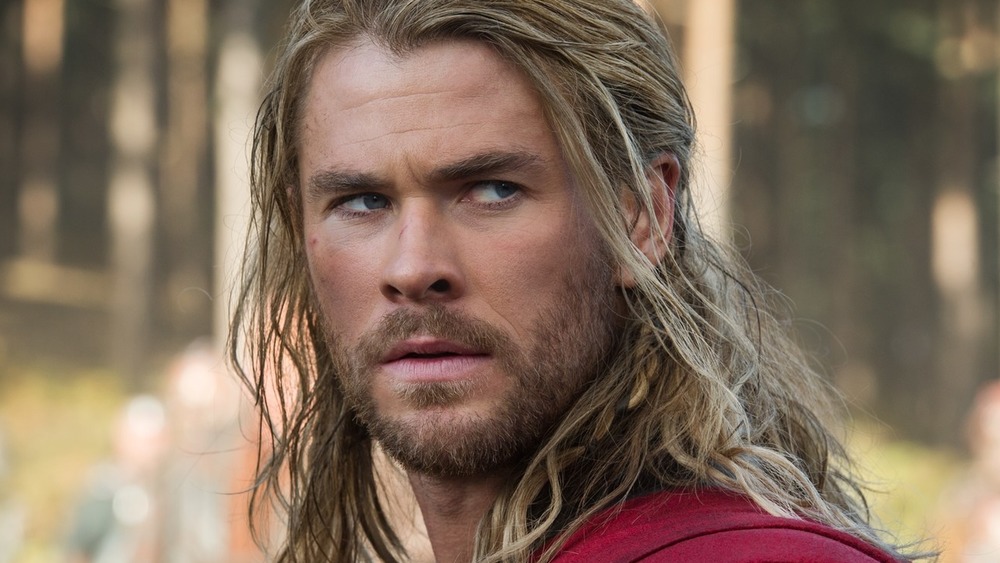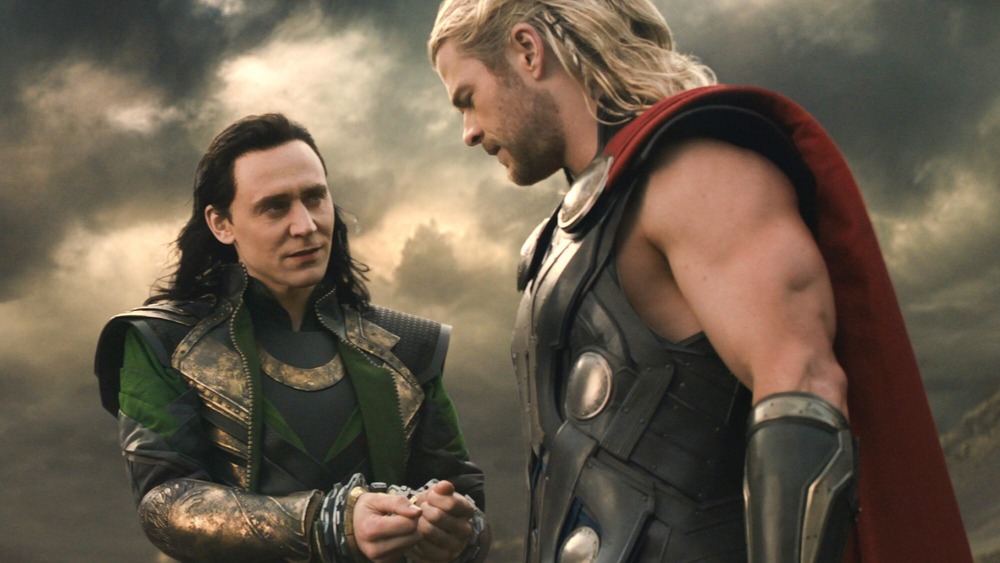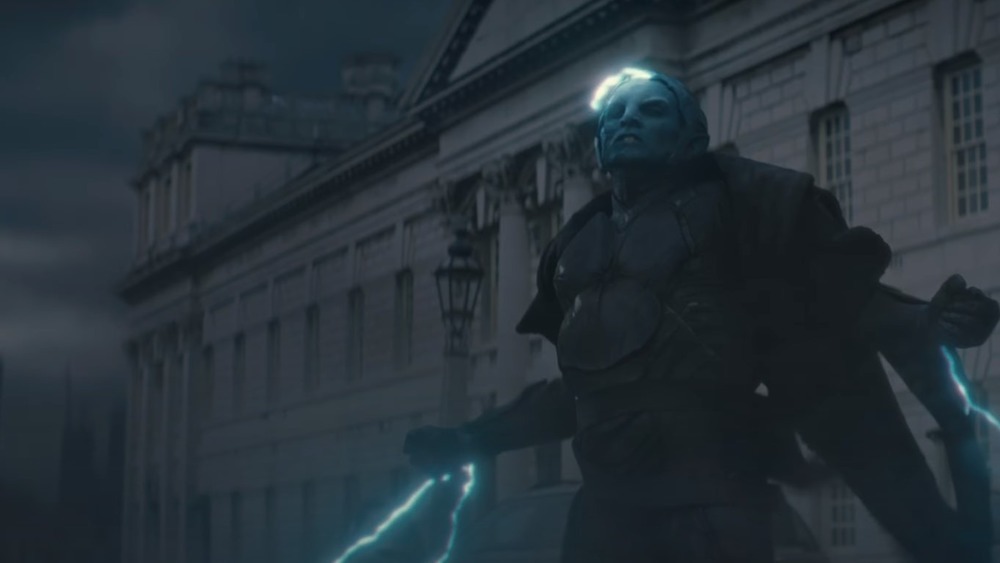The Ending Of Thor: The Dark World Explained
With the shoe-staring hesitancy of a blossoming young scofflaw who's not sure that he's going to get away with this one, Marvel Studios released Thor in 2011. The staggeringly straight-faced adaptation won fans over, following in the footsteps of its MCU brothers by ditching the embarrassing 1960s camp in favor of bright flashing lights and an accessible origin story. "More!" cried the fans.
"More what?" inquired the MCU.
"More Thor, por favor!" the devotees responded, and before Marvel could piece together that everyone was just really excited about rhyming that day, they'd already signed Chris Hemsworth on for six more movies. That's how we got Thor: The Dark World and its expository lore, wherein Thor's grandpa Bor (Tony Curran) takes scores of swordsmen, each more hardcore than the one before, to glorious war.
Their target: the Dark Elves, led by Malekith (Christopher Eccleston), who longs to return the universe to darkness through the power of the Aether, an evil force as burgundy as it is despicable. His whole plan hinges on the Convergence, a rare astral happenstance by which all nine realms of existence line up like easily exploded toy soldiers. Bor snatches the Aether before it can be unleashed, and hides it away deep underground. Malekith, meanwhile, escapes promising that he'll be back by the start of the second act.
Loki's in jail, Jane's in trouble, Thor's in five more movies
That brings us to the present, where Loki is imprisoned after the events of The Avengers. Thor, meanwhile, travels the universe, hitting everything that his brother damaged with a hammer, and reuniting the realms. As tends to happen, another Convergence starts up around this point, opening portals between realms without rhyme or reason.
Enter Dr. Jane Foster (Natalie Portman), astrophysicist and Thor's main squeeze from the first movie. Entering one of the aforementioned portals and exiting in the subterranean resting place of Malekith's ultimate weapon, she makes a big whoops and accidentally swallows the Aether within her body. Thor, understandably worried, takes Jane on a trip to Asgard, where healthcare is more affordable. There, they learn that Jane needs to get her Aether problem taken care of, pronto. Matters only get worse from here, as the return of the Aether wakes Malekith up from his eons-long nap, and he leads his army in an attack on Asgard.
Thor's mother is killed in the struggle, reuniting Thor and Loki in a quest for vengeance. Nabbing Jane, they take the Bifrost from Asgard to Svartalfheim, and the world collectively agrees that Scandanavians aren't allowed to name things anymore. Once there, Malekith yoinks the Aether out of Jane, but the trio can't stop him from making off with it and Loki is killed in the fight – or is he? He makes Thor promise to tell their old man about what a brave boy he was, and definitely doesn't take advantage of Thor being distracted so that he can usurp the throne of Asgard, using his powers of illusion to replace Odin (Anthony Hopkins) and trap the family patriarch on Earth. Insert Katherine Hahn wink meme.
Thor: The Dark World's villain just can't catch a break
Malekith tries for round two of the multidimensional apocalypse with the help of the Aether and the now-full-fledged Convergence, but gets a face-full of Mjolnir. Thor battles the dark elf across the realms, giving Jane and her friends from work a chance to warm up their Science Machine, which they use to transport Malekith away from the center of the Convergence and into the path of his actively crashing spaceship. The evil elf is dead or, at the very least, a lot more gooey. His demise is never explicitly seen, but if Christopher Eccleston's comments on his experience working in the MCU are anything to go by, it's probably permanent.
The battle won, Thor heads back to Asgard. There, Odin pulls the Norse god approximation of offering his boy the family store, but Thor isn't interested in the throne. He also mentions what a big good boy Loki was before he died, then heads off for more adventures, knocking out Hydra bases and fighting Ultron. Unfortunately, he doesn't turn around and wave goodbye on his way out, as doing so might have clued him in on the fact that Loki wasn't dead at all, and has now taken over Asgard as a super secret pretend Odin in disguise. This scene more or less sets up the next phase of Thor and Loki's complicated sibling relationship in the greater MCU, and Loki's role as chief Avenger frenemy for the duration of the Infinity Saga.
Which brings us to the Infinity Stones. It always comes back to the Stones. The Aether, now revealed to be — drum roll — a dang old Infinity Stone, goes to the Collector, that skeevy son of a gun from Guardians of the Galaxy. One more piece now in place on the road to Infinity War, Thor and Jane hook back up for what will turn out to be the last time until the forthcoming Thor: Love and Thunder. Most importantly, in a post-credits scene, we learn that there's just a giant, nigh-unkillable monster running around London now, and the general feeling in the room seems to be "eh, that's an Agents of S.H.I.E.L.D. problem."


